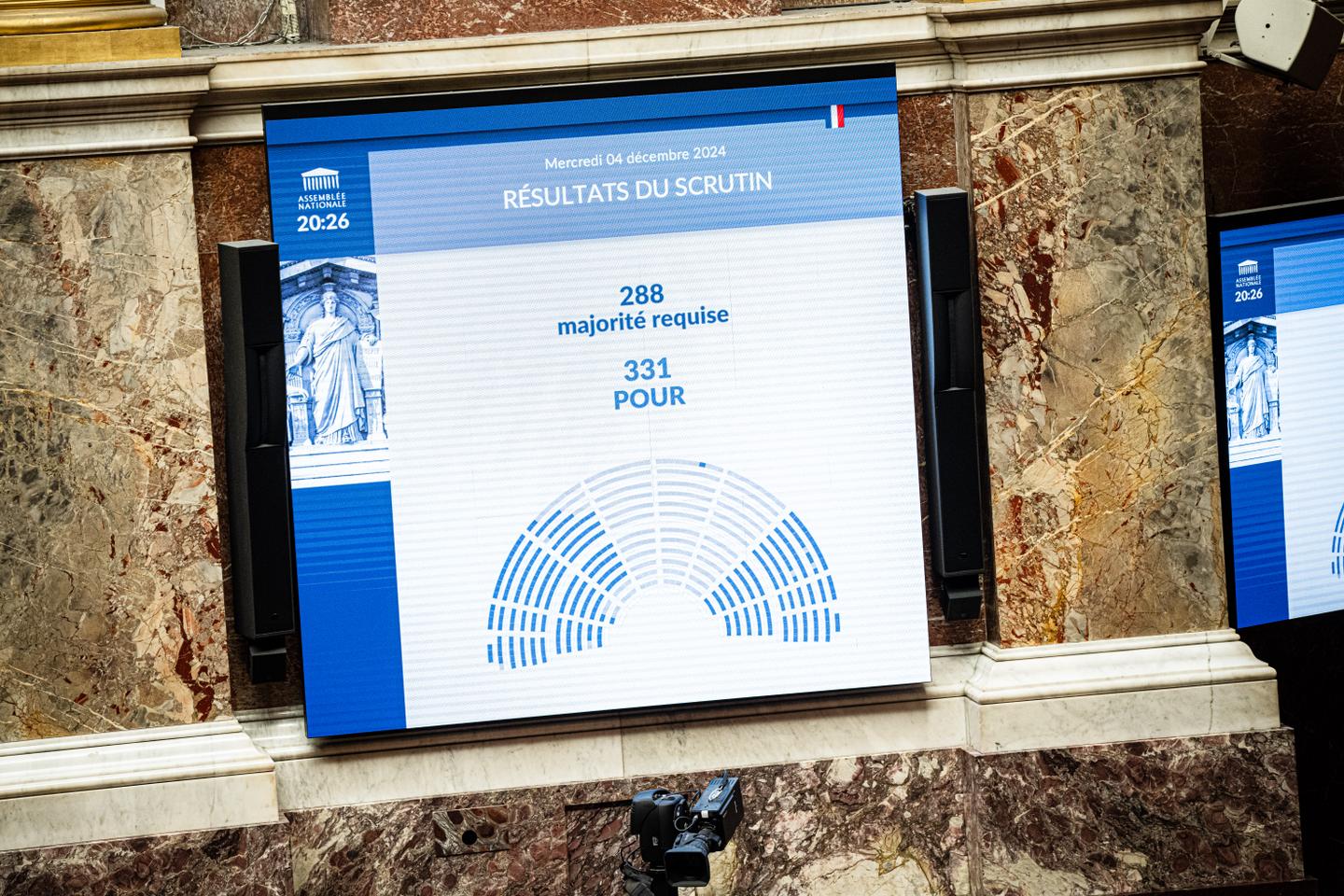


Decided on Monday, December 2, by far-right leader Marine Le Pen, and confirmed two days later by a comfortable majority of 331 votes, the fall of Prime Minister Michel Barnier's government is yet another symptom of the deep crisis France is going through. By shamelessly aligning her votes with those of the left in response to the invocation of Article 49.3 of the Constitution, which allowed the government to pass the social security budget bill for 2025 without a vote, the leader of the Rassemblement National (RN) demonstrated that she had the power of life and death over a government that had been painstakingly put together just three months earlier with the mission of restoring order to the country's public finances.
On Wednesday evening, Barnier's final appeals to responsibility, aimed in particular at the Socialists who, like MP and former president François Hollande, voted massively in favor of censure, did nothing. France is settling into a period of instability at a time when the economic situation is deteriorating and the international environment is hardening. Contrary to the claims of the arsonists who assert that they wanted to protect the French from unfair decisions, censorship will have a cost, including for the most vulnerable of citizens. The public deficit is still out of control, interest rates are rising and the debt burden is increasing.
A deep mistrust
The real target of the motion of no confidence was not Barnier but President Emmanuel Macron. The radical left is openly campaigning for his resignation, while the far right has opted for the lasso, promising to "co-construct" with the future government but without assuring it a long life. Macron is still paying for, and making the country pay for, the disastrous dissolution of the Assemblée Nationale in June, which resulted in no majority, three blocs unable to agree, and the feeling amongst many voters that they had been democratically cheated during the interminable appointment of the prime minister. There is now a real risk that the political crisis will degenerate into an institutional crisis, given the high level of mistrust not only of the president but also of parliamentarians, who are collectively accused of impotence.
The failure of the Barnier government reflects the country's difficulty in shifting to a culture of compromise, while the Assemblée Nationale is frozen in its current configuration until at least June when the possibility of another dissolution opens up. Until then, there are two dangers to be avoided: gridlock and the growing influence of the far right.
The ease with which Le Pen got the better of Barnier's coalition made up of rival, loosely-knit parties – the conservative Les Républicains on one side, the archipelago of the center on the other – is the implacable demonstration that as long as the left, in its entirety, remains in opposition, the RN is guaranteed to lead the way. To counter this, it is Macron's responsibility to finally open up the game. A window of opportunity has opened, and voices are being raised within the Socialists and amongst the Greens in an attempt to forge a non-aggression pact, in contrast to the systematic attacks practiced by radical left leader Jean-Luc Mélenchon. These voices must be heard and valued.
A coalition only has a chance of holding together if there is a prior agreement between the parties. The more parties there are, the more difficult it is to reach agreement. It would take time, and the country no longer has the luxury of waiting. Left, center and right, everyone has their backs to the wall, with no way out.
